Collaborative Specialization in Engineering Education (EngEd)
What is the Collaborative Specialization in Engineering Education?
The Collaborative Specialization in Engineering Education (EngEd) is an interdisciplinary initiative designed for students within home programs in engineering or education who are interested in pursuing courses and research in engineering education. This opportunity allows students to join a small community of scholars interested in research and learning at the nexus of education and engineering practice. Upon successful completion of the requirements of the home department and the specialization, students receive the notation “Completed Collaborative Specialization in Engineering Education” on their transcript.
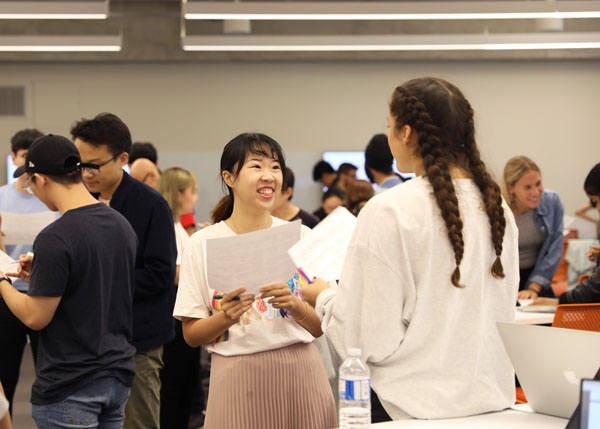
What Courses Do I Take?
A core course provides students with an introduction to engineering learning, knowledge, assessment, and culture and community, while the theoretical foundations, methods, and topics related to engineering education research are explored in a seminar course.
How Does the Research Work?
Research is supervised by a graduate faculty member in a home department (see below for participating degrees, departments and faculty). Opportunities exist to assess and apply research findings as part of instructional initiatives within the Faculty of Applied Science & Engineering.
Programs & Admission Requirements
Admission Requirements
Applicants must be admitted to a participating graduate unit and comply with the admission procedures of that unit before applying to the Collaborative Specialization in Engineering Education.
Students may then submit the following to the EngEd administrator:
- A completed Registration Form
- A curriculum vitae (CV)
- A personal statement explaining how their program of study and specific research interests relate to engineering education
- A letter of recommendation from a faculty member confirming their willingness to supervise and support the student’s research and outlining why the student would be well suited for the Engineering Education Collaborative Specialization
Specialization Requirements
Students must satisfy the requirements of both the home degree program and the graduate unit.
Students must complete a total of 0.5 full‐course equivalents (FCEs) as follows:
- The core course: TEP 1204H (formerly APS 1204H) - Instructional Design in Engineering Education (0.5 FCE)
- Continuous participation in a seminar series: TEP 1205Y (formerly APS 1205Y) (CR/NCR) (0 FCE)
Students must undertake the major paper or thesis required by the home degree program with a focus on engineering education under the supervision of a collaborative specialization core faculty member.
Admission Requirements
Applicants must be admitted to a participating graduate unit and comply with the admission procedures of that unit before applying to the Collaborative Specialization in Engineering Education.
Students may then submit the following to the EngEd administrator:
- A completed Registration Form
- A curriculum vitae (CV)
- A personal statement explaining how their program of study and specific research interests relate to engineering education
- A letter of recommendation from a faculty member confirming their willingness to supervise and support the student’s research and outlining why the student would be well suited for the Engineering Education Collaborative Specialization
Specialization Requirements
Students must satisfy the requirements of both the home degree program and the graduate unit.
Student must complete a total of 1.0 full‐course equivalents (FCEs) as follows:
- The core course TEP 1204H (formerly APS 1204H) - Instructional Design in Engineering Education (0.5 FCE)
- An elective course in engineering education (0.5 FCE); see the elective course list
- Continuous participation in a seminar series: TEP 1206Y (formerly APS 1206Y) (CR/NCR) (0 FCE)
- PhD students will attend the seminar series in Year 1, deliver a seminar on their research topic in Year 2, and design and deliver one or more instructional workshops in their final year, in addition to making a final presentation on their research
Students must complete the major paper or thesis required by the home degree program with a focus on engineering education under the supervision of a collaborative specialization core faculty member.
Where a student has completed the core course TEP 1204H (formerly APS 1204H) at the master’s level, the student will complete an alternate elective course (see elective course list) approved by the collaborative specialization Director.
Course List
TEP 1204H Instructional Design in Engineering Education (formerly APS 1204H)
TEP 1205Y Engineering Education Seminar – Master’s Level (formerly APS1205Y)
TEP 1206Y Engineering Education Seminar – Doctoral Level (formerly APS1206Y)
Department of Curriculum, Teaching and Learning
CTL 1018H Introduction to Qualitative Inquiry in Curriculum, Teaching and Learning
CTL 1041H Research Methods in Education
CTL 1042H Instrument Development in Education
CTL 1306H Qualitative Research Methods in Education: Concepts and Methods
CTL 1842H Mixed Methods Research in Education: Combining Qualitative and Quantitative Inquiries
CTL 1846H Assessment for Teaching and Learning
CTL 1608H Constructive Learning and Design of Online Environments
CTL 1028H Constructive Feedback in Teaching
CTL 1032H Knowing and Teaching
CTL 1047H Self‐Assessment
CTL 1206H Teaching and Learning Science
CTL 1207H Teaching and Learning about Science: Issues and Strategies in Science, Technology, Society and Environment (STSE) Education
CTL 1211H Action Research in Science, Mathematics and Technology Education
CTL 1215H Teaching and Learning about Science and Technology: Beyond Schools
CTL 1218H Culture and Cognition in Mathematics, Science and Technology Education
CTL 1603H Introduction to Knowledge Building
Faculty of Applied Science & Engineering
APS 1003H Professional Education and Instruction
APS 1001H Project Management
APS 1018H History and Philosophy of Engineering
APS 520H Technology, Engineering, and Global Development
APS 530H Appropriate Technology & Design for Global Development
JEI 1901H Technology, Society and the Environment I
APS 1012H Management of Innovation in Engineering
APS 1013H Applying Innovation in Engineering
MIE 1402H Experimental Methods in Human Factors Research
MIE 1403H Analytical Methods in Human Factors Research
MIE 1413H Statistical Models in Empirical Research
MIE 1415H Analysis and Design of Cognitive Work
TEP 1010H (formerly APS 1010H) Cognitive and Psychological Foundations of Effective Leadership
TEP 1011H (formerly APS 1011H) Concepts and Application of Authentic Leadership
TEP 1501H (formerly APS 1501H) Leadership and Leading in Groups and Organizations
Faculty of Information
KMD 2001H Human‐Centred Design
Current Faculty and Graduate Students
Program Director — Dr. Cindy Rottmann
Chemical Engineering & Applied Chemistry, MASc, PhD
Professor Greg Evans
Professor Emily Moore
Professor Cindy Rottmann
Civil Engineering, MASc, PhD
Professor Heather MacLean
Professor Daniel Posen
Professor Matthew Roorda
Professor Sebastian Goodfellow
Curriculum Studies and Teacher Development, MA, PhD
Professor Clare Brett
Professor Wania Gitari
Professor Jim Slotta
Professor Carol-Ann Burke
Leadership, Higher Education and Adult Education, MA, MEd, PhD
Professor Ruth Childs
Professor Creso Sá
Professor Stephanie Waterman
Professor Emerita Leesa Wheelahan
Mechanical & Industrial Engineering, MASc, PhD
Professor Mark Chignell
Professor Elham Marzi
Professor Susan McCahan
Professor Deborah Tihanyi
Professor Lisa Romkey
Professor Cindy Rottmann
Professor Emily Moore
Professor Patricia Sheridan
Electrical & Computer Engineering, MASc, PhD
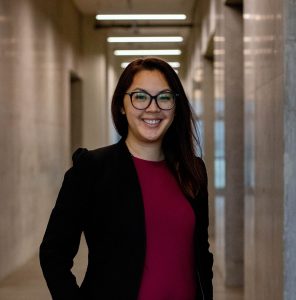
Anny Fong | Supervisor - Greg Evans
Exploring emotion recognition ability in the context of undergraduate engineering students.
Anny holds a Master of Engineering in Electrical Engineering, a Master of Business Administration (University of Toronto-Rotman), and a Master of Laws (York University-Osgoode Hall Law School). Her current research interest focuses on emotion recognition ability, particularly in the context of undergraduate students. She is currently pursuing her PhD under the supervision of Dr. Greg Evans.
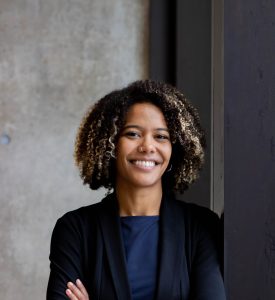
Dimpho Radebe | LinkedIn | Supervisors - Cindy Rottmann & Emily Moore
Deconstructing engineering culture by examining the intersections of engineering education, social justice, and collective wellbeing.
Dimpho Radebe (she/her) is a PhD Candidate in Engineering Education at the University of Toronto. She completed a BASc in Industrial Engineering from UofT, an MSc in Management from the University of Bath, UK, and has several years of professional experience in the public and private sectors in process engineering and project management. Dimpho’s career and research journeys have been motivated by her values and lived experiences. Her research focuses on engineering culture and identity, engineering career paths, decolonization, ethics, equity, and social justice in STEM. She draws on critical race theory and radical black feminism to deconstruct engineering culture and curriculum and imagine inclusive and just futures. Dimpho is passionate about efforts to diversify engineering and encourage transformational culture change that enables engineers with different viewpoints and varying career path interests to thrive.Dimpho enjoys spending time outdoors, trying new foods, engaging in music, art, and dancing, and traveling to different countries.
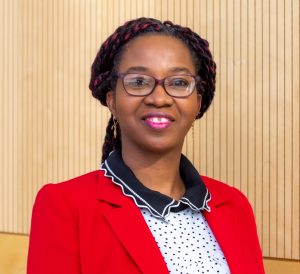
Anuli NDubuisi | LinkedIn | Supervisor - Jim Slotta
Anuli Ndubuisi's research investigates how the boundaries that students encounter in global learning settings help them to navigate conflict and engage in productive exchanges.
Anuli Ndubuisi is an engineer, educator, and a researcher with the Encore Lab at the University of Toronto. Anuli has a combined 18 years of experience in the engineering profession, education, and research. Anuli leverages her extensive experience working on global engineering projects in the energy industry to help people build professional and global competencies that are essential for the 21st century global economy.
Anuli’s research is situated at the intersection of global education and learning across boundaries, where boundaries can be seen as unfamiliarities or differences in knowledge, culture and communities of practice. Her study is specifically focused on diverse groups engaged in learning within projects situated in global settings, international contexts, and complex collaboration efforts.
Furthermore, Anuli’s passion for inclusivity motivates her to explore various ways to support diverse students to improve post secondary experiences, gain access to graduate studies, leverage research opportunities and participate in global learning experiences.
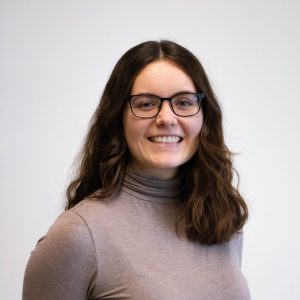
Elizabeth DaMaren | LinkedIn | Supervisor - Alison Olechowski
Investigating student engagement and equity considerations in computer-aided design group learning settings.
Liz DaMaren is a PhD student with Dr. Alison Olechowski in Ready Lab. Her research uses mixed-methods approaches to investigate student engagement and equity considerations in computer-aided design (CAD) education, towards the goal of creating more accessible, inclusive, and effective CAD curricula. She received a Bachelor of Mechatronics Engineering & Society with an Interdisciplinary Minor in Sustainability from McMaster University and worked for Engineering Deans Canada doing project management work for the Engineering Collaboration for Online and Remote Education (E-CORE/CIEL) project during the pandemic before starting her graduate studies at UofT. In her spare time you’ll find her baking, canoeing, or planning her next outdoors trip.

Amin Azad-Armaki | LinkedIn | Supervisor - Emily Moore
Empowering future engineering leaders and entrepreneurs through the application of Systems Thinking methodologies.
Amin is a Ph.D. student at ISTEP, pursuing a collaborative specialization in Engineering Education. His research falls into the intersection of Entrepreneurship, Systems Thinking, and Engineering Education. More preciously, he focuses on the learning outcomes of teaching Systems Thinking to Engineering students and its application in entrepreneurship. Outside academia, he worked as an entrepreneur and as a consultant to large tech companies. Amin’s hobbies include exploring the outdoors, trying new food, and traveling.
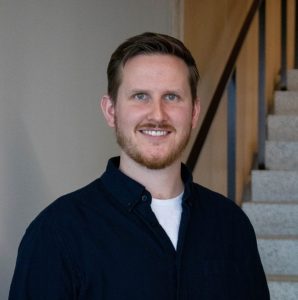
Greg Litster | LinkedIn | Supervisor - Emily Moore & Patricia Sheridan
My research investigates design cognition during the early problem framing stages of the design process.
Greg is a doctoral student at the University of Toronto’s Department of Chemical Engineering, pursuing a collaborative-specialization in Engineering Education under the supervision of Dr. Emily Moore and Dr. Patricia Sheridan. Greg’s research is focused on design cognition. He is interested in understanding what impact teamwork has on design problem framing and outcomes in engineering teams. Greg obtained his MASc in Management Science (2022) and BKI (Bachelor of Knowledge Integration - 2020) both from the University of Waterloo.
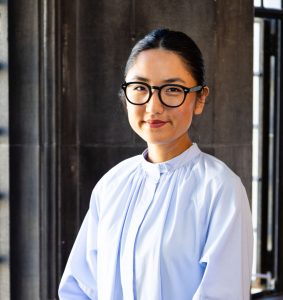
Jessica Li, P.Eng | LinkedIn | Supervisor - Emily Moore and Elham Marzi
Understanding leadership development within engineering professional services firms.
Jessica is a Professional Engineer currently pursuing her PhD with Troost ILead and the Department of Mechanical and Industrial Engineering. Under the co-supervision of Dr. Emily Moore and Dr. Elham Marzi, Jessica's research explores how leadership is contextualized in professional services firms, and how organizations can support leadership development in their staff.Jessica holds a B.A.Sc in Chemical Engineering from the University of Toronto and previously worked as an engineering consultant in the biotech and pharmaceutical industries for eight years.

Tamara Kecman | Supervisor - Susan McCahan
Engineering Exposure to Artificial Intelligence

Prarthona Paul | Supervisor - Cindy Rottmann
Investigating the Impact of Artificial Intelligence on Engineering Work and Its Implication on Engineering Education

Lynda Ebelendu | LinkedIn | Supervisor – Emily Moore
Integrating sustainability factors into material design
Lynda Ebelendu is a PhD student in Chemical Engineering and Applied Chemistry at the University of Toronto. She completed a BEng in Industrial and Production Engineering from the University of Benin, an MBA from the University of Lagos, a HEQ Certificate in IT from the British Computer Society, and an MSc in Mechanical Engineering from Ulster University. Her background spans engineering, supply chain management, operations and data analytics, with experience across academia, operations, healthcare, and manufacturing. Her experience includes operations work with the BBC, where she interned, project management and data-driven healthcare transformation within the NHS, and prior roles in supply chain, operations, and sustainable manufacturing in multinational environments. Lynda is passionate about applying systems-thinking approaches to sustainable materials design and developing practical frameworks that enable early integration of social, environmental, and economic considerations into material development. She is committed to translating interdisciplinary research into scalable, real-world solutions and actively supports STEM mentorship and outreach initiatives.

Mymoon Bhuiyan | LinkedIn | Supervisor — Cindy Rottmann
How early career engineers perceive ethical dilemmas
Moon holds a Bachelor of Engineering from McMaster University. Their interest lies in understanding how engineers perceive ethical challenges that occur in the practice of engineering. They're currently pursuing their Master of Applied Science with Dr.Cindy Rottmann.
Program Contact
If you would like additional information about this specialization, please contact:
istep@utoronto.ca | 416-978‐2821
The Collaborative Specialization in Engineering Education
Faculty of Applied Science & Engineering
Institute for Studies in Transdisciplinary Engineering Education & Practice (ISTEP)
55 St. George St. Rm723
Toronto, Ontario M5S 0C9
Canada